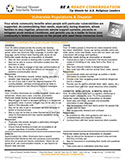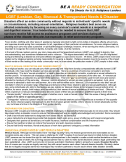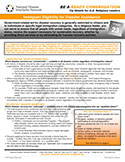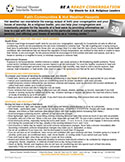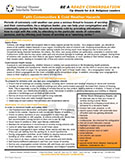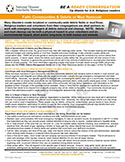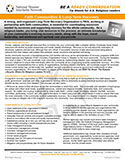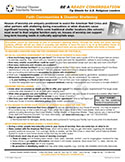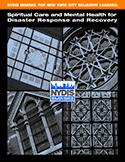
NYDIS Manual: Spiritual Care and Mental Health for Disaster Response and Recovery
Spiritual Care and Mental Health for disaster response and recovery is a comprehensive resource tool that enables NYC religious leaders to best serve their congregations and the public as they respond to and recover from disasters. Its 19 chapters were

